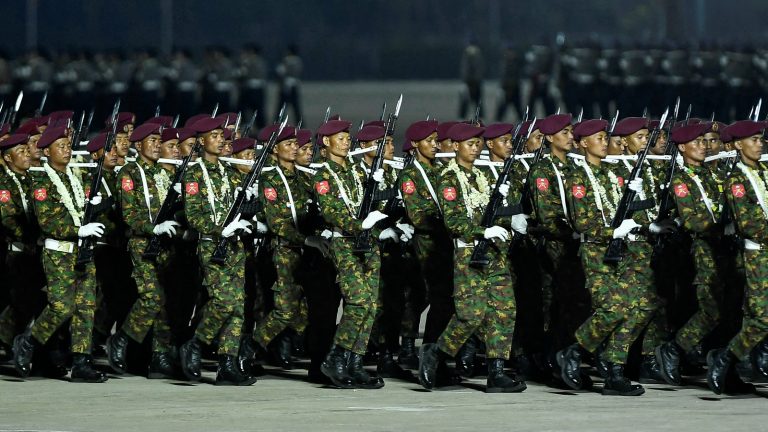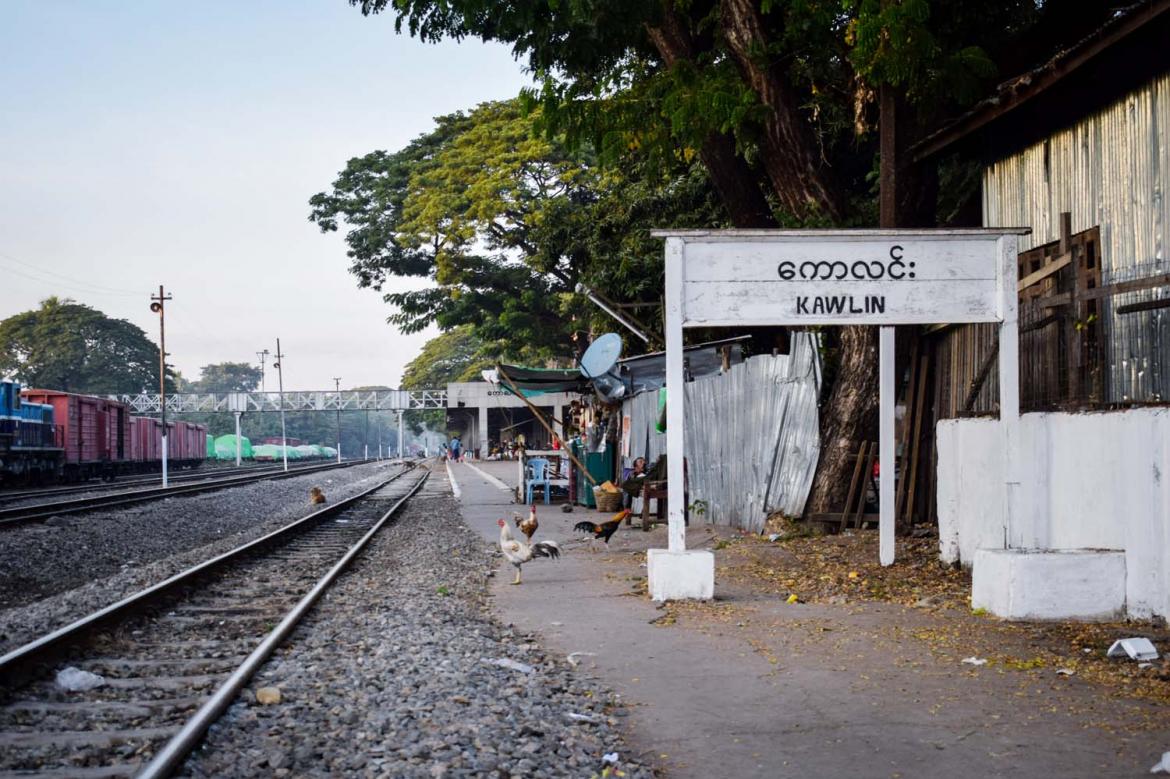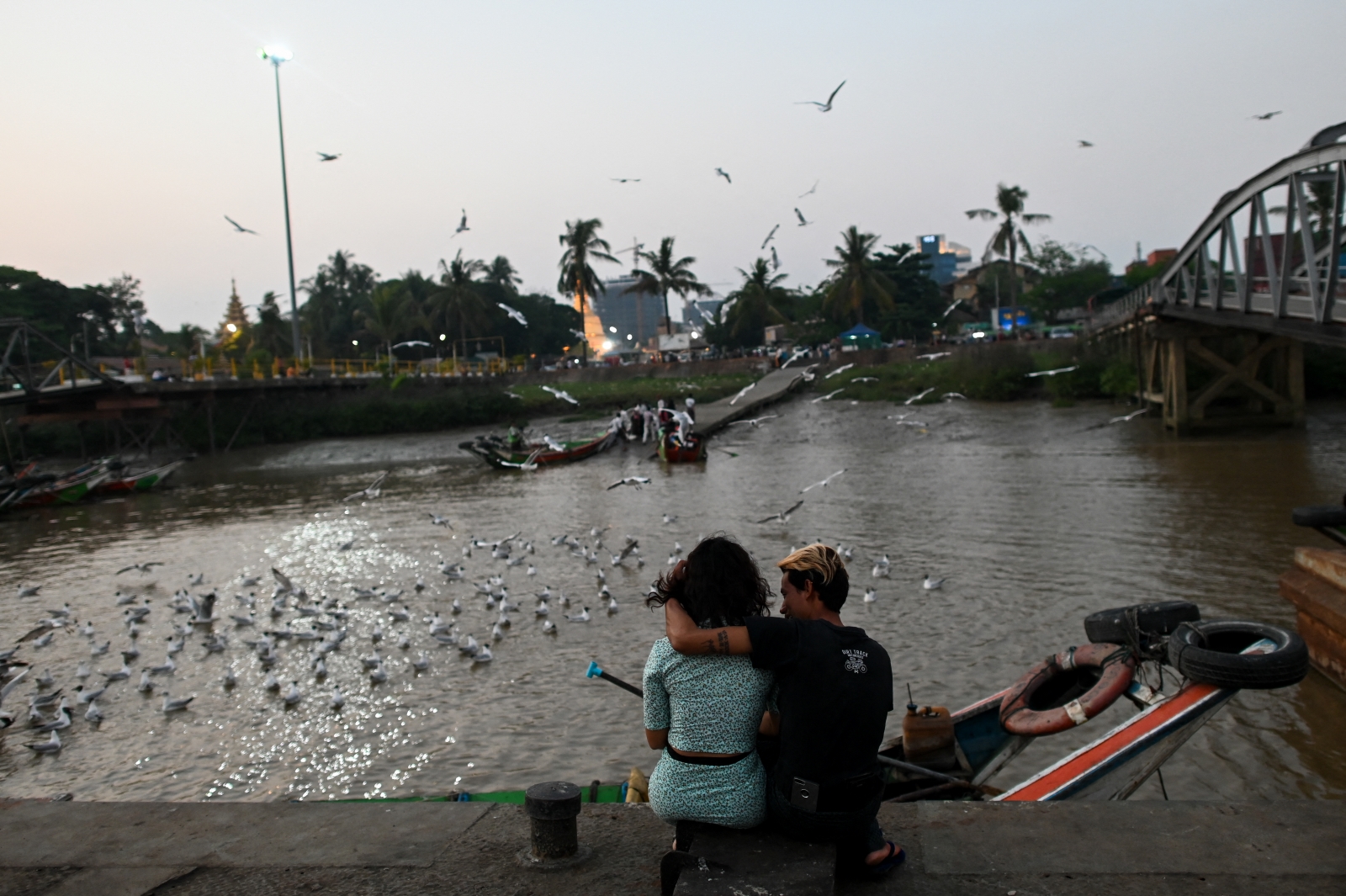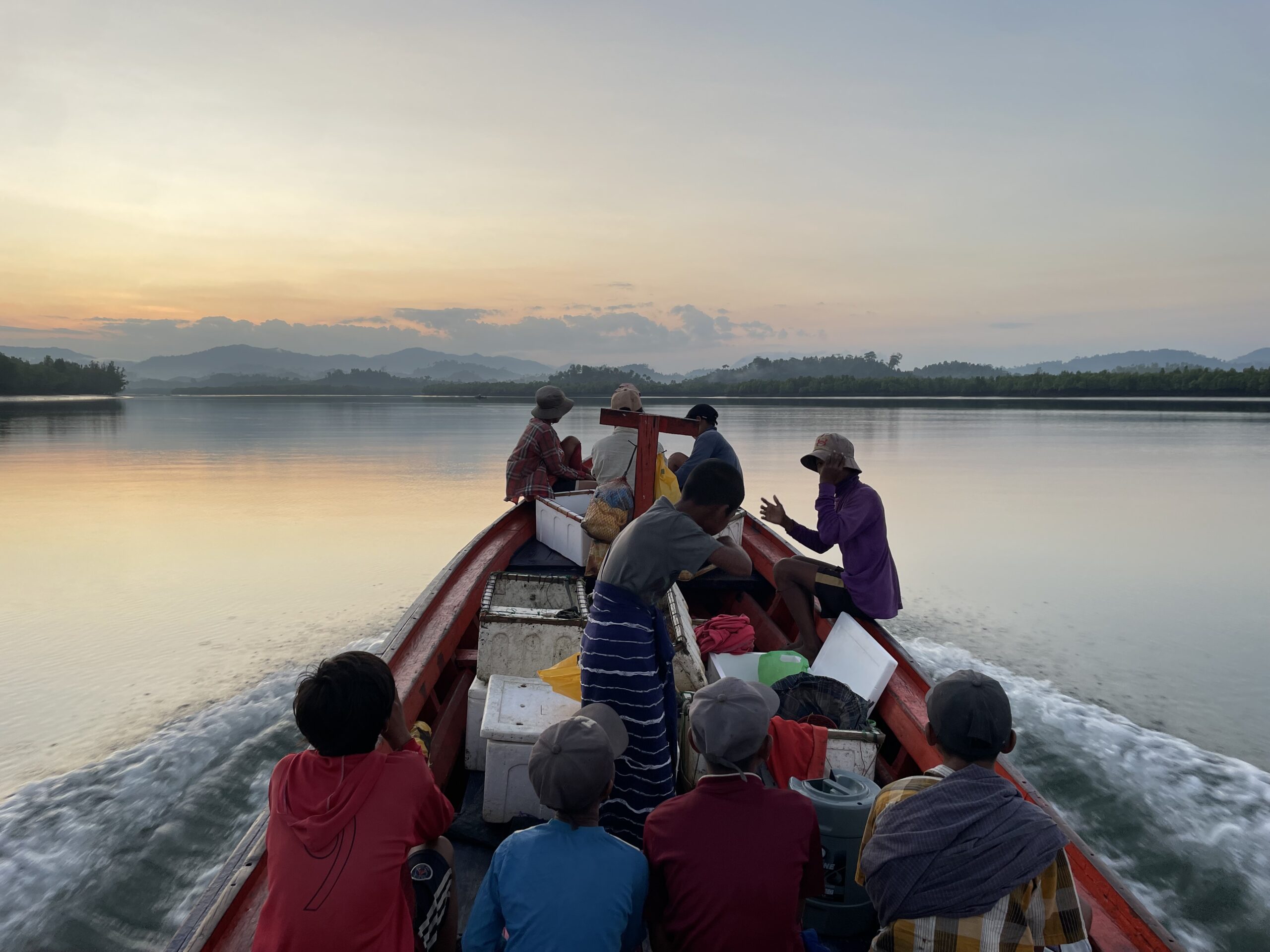Elected parliamentarians have met and plan to establish regional constitution committees, but some activists are pushing back, calling for a more inclusive process and a total overhaul of the previous system.
By FRONTIER
When the military seized power on February 1, 2021, it did so hours before the new parliament was set to convene for the first time after a general election in November 2020. The national and regional parliaments, known as hluttaws, have been gathering dust ever since.
But as armed opposition to military rule succeeds in carving out liberated territories, lawmakers elected in 2020 have begun to convene in areas controlled by the resistance, including in Sagaing, Magway and Tanintharyi regions. On November 17, those three hluttaws held their first official parliamentary sessions, meeting online due to continued instability, to discuss the drafting of interim regional constitutions.
“This is the first time that regional parliamentary meetings have been held since the military coup,”said U Win Htay, who was elected in 2015 and 2020 as a National League for Democracy candidate to represent Myaing Township in the Magway regional parliament. “Our efforts have begun to come to fruition, and we aim to strengthen legislative programmes across the region.”
The NLD won a landslide election victory in 2020, taking every single seat in Magway, Sagaing and Tanintharyi. The party remains by far the most popular political party in the country, and many ordinary people celebrated the convening of the parliament and support the NLD’s right to make important decisions for the populace.
“I’m happy to see the regional parliaments returning, it’s very good that our elected representatives can meet,” said Ko Tun Tun Oo*, a resident of Magway’s Pakokku Township who voted for the NLD in 2020.
But not everybody is thrilled. Since the coup, there’s been a shift in the balance of political power. The first protests against the military takeover were largely led by progressive activists not affiliated with the NLD, while the armed uprising has been dependent on ethnic armed groups, many of which have complicated relations with the party.
“At this time when the opposition to the military dictatorship was strong, NLD lawmakers suddenly convened parliament,” said Ma Yamone*, a member of an activist group in Sagaing’s Yinmarbin Township. “There was no serious agreement between the revolutionary groups and the elected lawmakers about the preparation of the interim constitution, but the lawmakers approved it anyway.”
Convening the hluttaws
Soon after the coup, lawmakers elected to the bicameral national parliament formed the Committee Representing Pyidaungsu Hluttaw. In April 2021, the CRPH announced the formation of the National Unity Government, which many in Myanmar see as the legitimate national authority. But the CRPH did not include lawmakers from state and regional parliaments, which were left to organise themselves.
Some regional groups tried to hold sessions in person in 2021, but suspended the meetings due to the security situation. Win Htay said there were some informal and ad hoc meetings of regional parliamentarians or specific committees, but the ones in November were the first with a proper quorum and an election for the speaker and vice speaker.
Win Htay did not give an exact number of attendees for the Magway meeting, but said every elected MP was present, except those in prison and those seen as too close to the military. The latter includes the 17 unelected military appointees, but also certain distrusted NLD members. Eight Magway regional parliamentarians remain in prison, according to a database compiled by the Assistance Association for Political Prisoners.
Win Htay and other lawmakers said they had long planned to hold such a parliamentary meeting, but were waiting for the right time. He said it’s necessary for lawmakers to meet in order to enact federal reform, one of the key demands made by ethnic groups and more progressive activists.
In recognition of this, the NLD lawmakers have named their parliamentary bodies “federal unit hluttaws”.

“The most important objective is to accelerate and win the Spring Revolution,” Win Htay said. “Next, our goal is to become a federal democracy. To be a federal democracy, laws are needed, and to enact laws, we need a hluttaw. That’s why we’re convening regional hluttaws.”
Before the coup, the NLD was criticised for failing to advance federal reforms, even blocking an amendment to allow state and regional parliaments to appoint their own chief ministers. As a result, some remain sceptical of the party’s commitment to federalism today.
Another issue giving activists pause is the contradiction inherent in honouring the results of the 2020 election. The election was held under the parameters of the military-drafted 2008 Constitution, which vests the military with vast undemocratic powers, such as an unelected bloc of 25 percent of the seats in parliament, control over three major ministries, and autonomy from civilian oversight.
In March 2021, the CRPH declared the 2008 Constitution abolished, which some say would mean the results of the 2020 election are no longer valid.
“On the one hand, they formed a government based on the results of the election won under the military-drafted 2008 Constitution,” said Ma Yamone. “On the other hand, they declared the 2008 Constitution is canceled.”
Ko Kyaw Than*, an executive member of the University of Yangon Students’ Union, agreed.
“We can’t decide to honour the 2020 election and launch a revolution,” he said.
While the NLD is undoubtedly the most popular party in the country, there are reasons to suspect its share of parliament seats might have been lower in a more democratic system. The party benefitted from the first-past-the-post voting system, winning around 80pc of the elected seats with around 60pc of the popular vote.
Strategic voting also likely benefitted the NLD. With the military only needing to win 25pc of the elected seats to form a government, some voters would have felt obligated to vote for the NLD rather than smaller parties, as it was the only national party capable of beating the military.
Who’s calling the shots?
For now, the hluttaws haven’t passed any significant laws. Win Htay said the Magway hluttaw has formed parliamentary committees – such as a humanitarian committee and an education committee – but is still planning and discussing related programmes.
“We will listen to the local peoples’ voice and plan for them,” he said.
Rather than taking issue with specific policies, activists and non-aligned armed groups are more broadly challenging the authority of the NLD MPs to make laws in the first place.
“The preparation plan for the interim period and interim constitution is important. It cannot be drafted without the opinion of the rest of the revolutionary groups on the ground,” said Ma Thiri Kyaw*, a member of an activist group that participated in the Sagaing Forum, a conference of opposition groups independent of the NUG.
The parliamentary committees will include members other than elected parliamentarians, but how those representatives will be chosen remains unclear, and a source of contention.
In Magway, Win Htay said five MPs are serving as coordinators, but the committee to oversee the interim period will include 63 people from various walks of life. That will be broken down to nine each from elected lawmakers, representatives of political parties, members of ethnic organisations, members of armed groups, representatives of activist groups and unions, participants in the Civil Disobedience Movement, and women and youth groups.
In Sagaing, there are to be 57 people on the committee, 15 of whom will be elected officials. In addition to 13 parliamentarians, there will be two elected ethnic ministers and nine other ethnic minority representatives. There will also be 11 representatives from the CDM, 11 activists and “respected” members of the community, and 11 representatives from political parties, including the NLD.
Despite the seemingly inclusive process, activists worry the NLD parliamentarians will stack the other sections of the committee with their own people.
“What principles will they use to decide who is a respectable person?” Asked Ma Yamone. “A respectable person could just mean the leader of an administrative group under the NUG. So the NUG would get a portion and the NLD lawmakers would get a portion.”
Thiri Kyaw said deciding which armed groups or activist groups to include is inherently arbitrary.
“There are many groups in Sagaing and Magway, so how will they decide?” she said.“The parliamentary lawmakers got the highest proportion in [Sagaing], why do they get the highest proportion?”
To some, the answer to that question is obvious.
“Elected officials should get the highest proportion in the commission. I don’t understand what would be wrong with that,” said Ko Win Naing*, an NLD voter from Sagaing’s Khin-U Township, who said more people support the NLD than the activist groups. “Lawmakers have a seat because of the people’s choice.”
The activists said over 100 revolutionary groups participated in the Sagaing Forum, but many of the largest armed groups are loyal to the parallel government and still have a favourable opinion of the NLD.
Ko Min Naing*, a member of the NUG-aligned Myaing People’s Defence Force, is a strong supporter of the NLD and said he joined the armed uprising against military rule specifically in response to the military’s rejection of the NLD’s election victory.
“Some local defence forces in our region have misunderstandings with NUG township administrators, but many PDF groups actively support the NUG and the NLD,” he said. “Many battalions have joined the NUG’s defence ministry, which shows they support the NUG.”
“I want to see Mother Suu free and leading the country again – that’s why I’m fighting the military,” he added, referring to NLD leader and deposed State Counsellor Daw Aung San Suu Kyi.
Supporters of both factions said it’s crucial not to allow these disputes to derail the uprising.
“We all want to see the fall of the military dictatorship as soon as possible,” said Win Naing. “Arguments and disunity will only delay our victory.”
Ma Yamone agreed.
“If the herd of cows splits up, the tiger will eat them.”
* indicates the use of a pseudonym for security reasons







